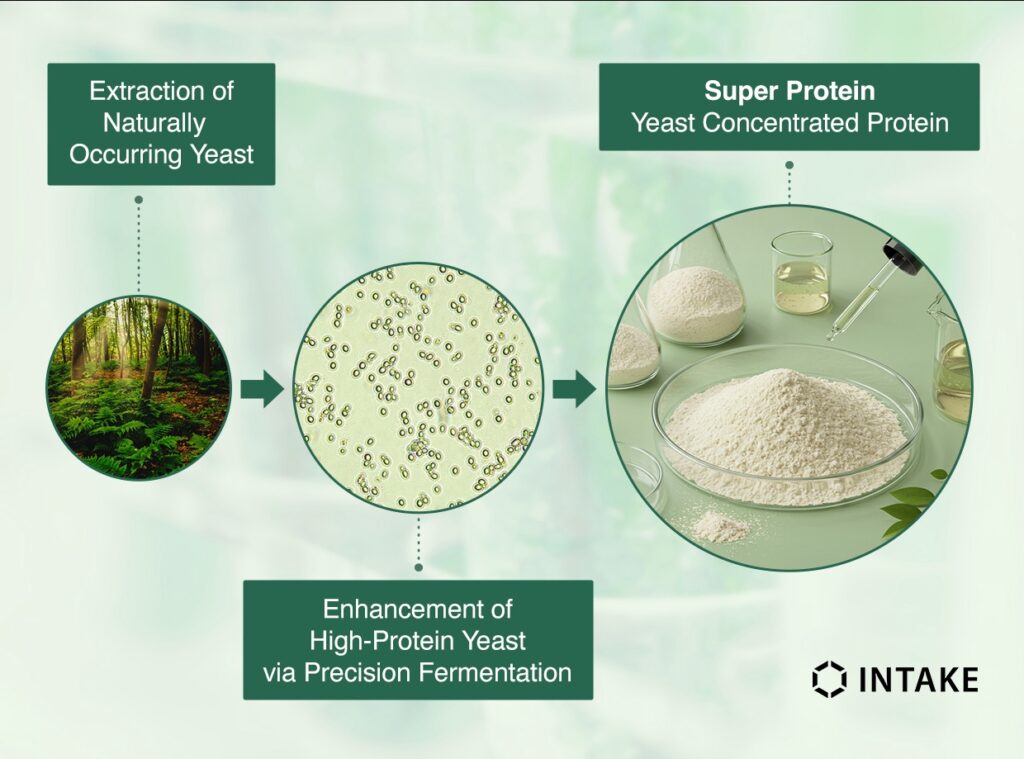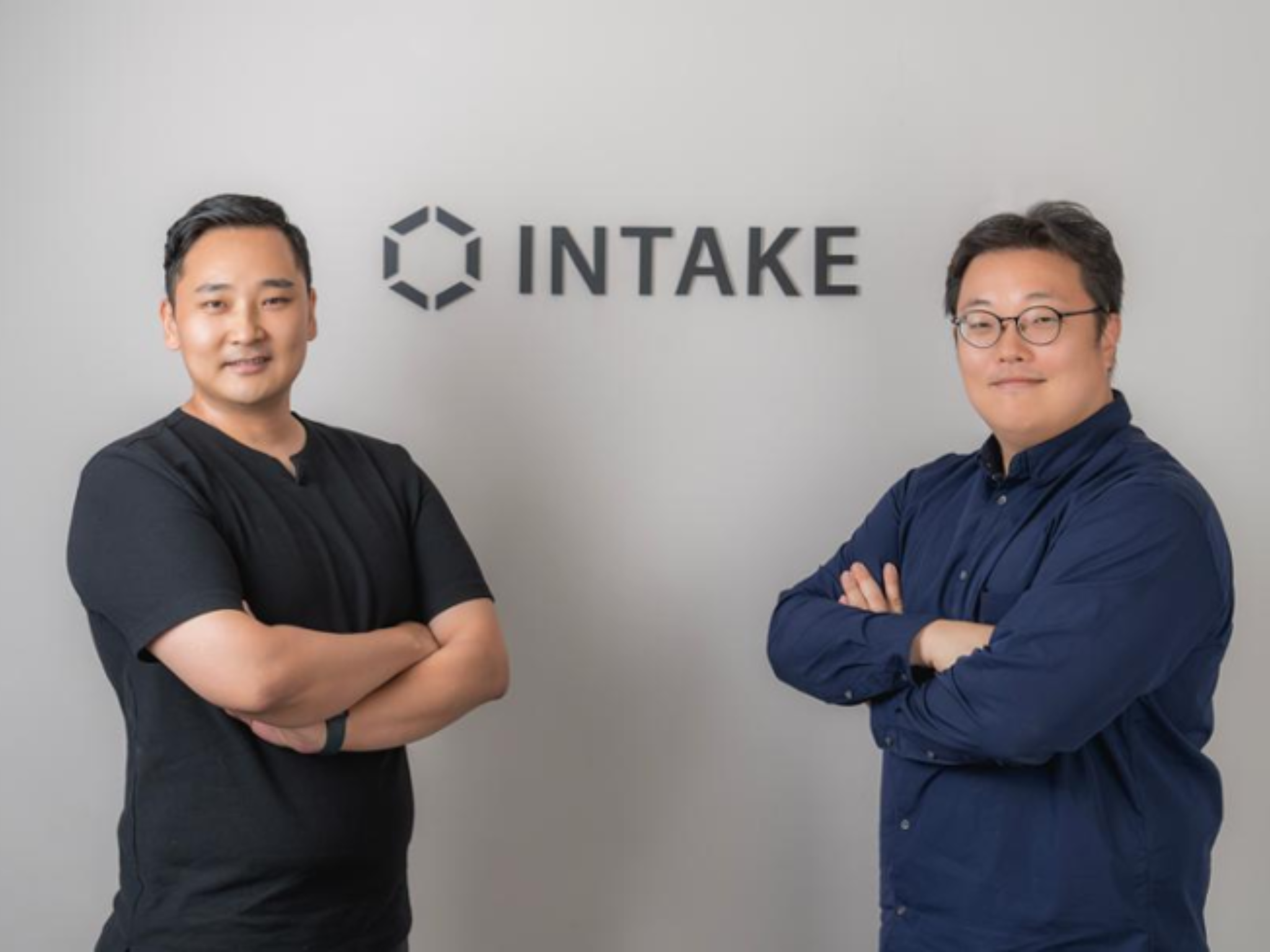4 Mins Read
South Korean alternative protein pioneer Intake has secured ₩13.5B ($9.2M) in Series C funding to commercialise its precision-fermented dairy, meat and egg proteins.
Seoul-based food tech leader Intake is expanding its alternative protein portfolio to include precision fermentation, raising ₩13.5B ($9.2M) in its latest funding round to advance this effort.
The parent company of plant-based meat maker Innocent and sugar-free konjac jelly brand Sugarlolo, Intake has developed a yeast strain from locally grown grapes with 1.5 times higher protein than conventional yeast, designed to replace whey protein. It’s also working on recombinant meat and egg proteins.
The Series C round was led by CJ Investment, HB Investment, Woori Venture Partners, KDB Industrial Bank Capital, J Curve Investment, and Wonik Investment Partners, and takes its total raised to $20M.
“As consumer interest in healthy eating habits continues to rise, industry attention toward advanced alternative food technologies is surging,” said Kim Hyun-kyu, a senior analyst at CJ Investment. “Intake, led by food science entrepreneurs from Seoul National University, has successfully developed patented alternative food ingredients and commercialised them.”
Intake working on several protein suites

Founded in 2013 by Han Nok-yeob, Intake specialises in alternative proteins across both B2B and B2C channels. Its move into precision fermentation comes at a time when investors are betting their dollars on the technology over plant-based proteins or cultivated meat.
Globally, fermentation-derived protein startups received 43% more capital in 2024, against a 64% drop for plant proteins and 40% decline for cultivated meat.
The firm is leveraging precision fermentation to produce what it calls “first-generation protein powders” for “second-generation alternative proteins” like meat, dairy and egg alternatives. Its “super protein” yeast strain is derived from grape yeast. It is earmarked to replace whey from cow’s milk.
“It is a naturally derived wild-type strain that has been enhanced through adaptive evolution and processed into a protein ingredient. We use Saccharomyces cerevisiae as the base strain,” said Han. After enhancing the strain, it optimises and cultivates the fungi. This is followed by the harvesting and disruption of cells to extract protein, and the processing of the material for various applications.
“Since the strain is naturally evolved and not classified as GMO, it falls outside major regulatory concerns,” he explained. “Nevertheless, we are preparing all necessary data to obtain the US FDA’s NDI (New Dietary Ingredient) and GRAS (Generally Recognized As Safe) approvals to ensure there are no safety issues.”
Additionally, Intake is working on heme protein – a primary component known to give beef its red colour and meaty flavour – by leveraging CRISPR-based gene editing and expression in native strains. Plant-based meat giant Impossible Foods also uses precision fermentation to produce heme protein for its beef analogues.
The firm is also developing albumen, or egg white protein, via the technology. California’s The Every Company and Finland’s Onego Bio are leading this space, with the former selling recombinant egg proteins for a few years now, and the latter being cleared to sell its ingredient in the US recently.
Alternative proteins heat up in South Korea

Intake’s whey protein replacer is currently in its early commercialisation phase, but the company has its sights set on the North American market for 2026, given “it is the largest and most advanced market in the whey-related protein segment”.
It will use the Series C funds to supercharge this effort, with a focus on accelerating the R&D and global infrastructure expansion specifically for the microbial protein business.
“This Series C funding is proof that our alternative food technologies and products have earned consumer and market trust,” said Han. “Our goal is to finalise the development of core microbial-based alternative food technologies, positioning them as a viable alternative to the conventional food industry.”
Intake’s existing businesses, which also include hydration brand Vital Water, netted the firm ₩22.4B ($15.2M) in revenue last year, achieving a 30% annual growth rate. Under its Innocent brand, it sells vegan dumplings, meatballs and falafels, among others.
The firm plans to “apply our protein ingredients across” its B2C brands, but its primary focus will continue to be on the B2B side.
It’s also leading a government-backed project to develop plant-based and cultivated fish products. The five-year research project is fuelled by a ₩29B ($21M) investment by the Ministry of Oceans, and involves two other startups and five universities. Here, Intake will introduce edible ingredients to mimic the taste and texture of salmon and tuna using “blue protein” derived from seaweed and kelp.
“Our goal for 2025 is to commercialise yeast-derived concentrated protein as a replacement for whey protein,” said Han. “Starting in 2026, we plan to develop heme protein, albumin, and whey alternatives through both GMO and non-GMO tracks.”
Its investment comes as alternative proteins become more popular in South Korea. Experts believe it could be one of the countries that issue regulatory approval for cultivated meat this year, with significant public investment going into this sector. Cultivated seafood company CellMeat filed for approval in early 2024, while Simple Planet has indicated that it aims to obtain the green light this year too.



